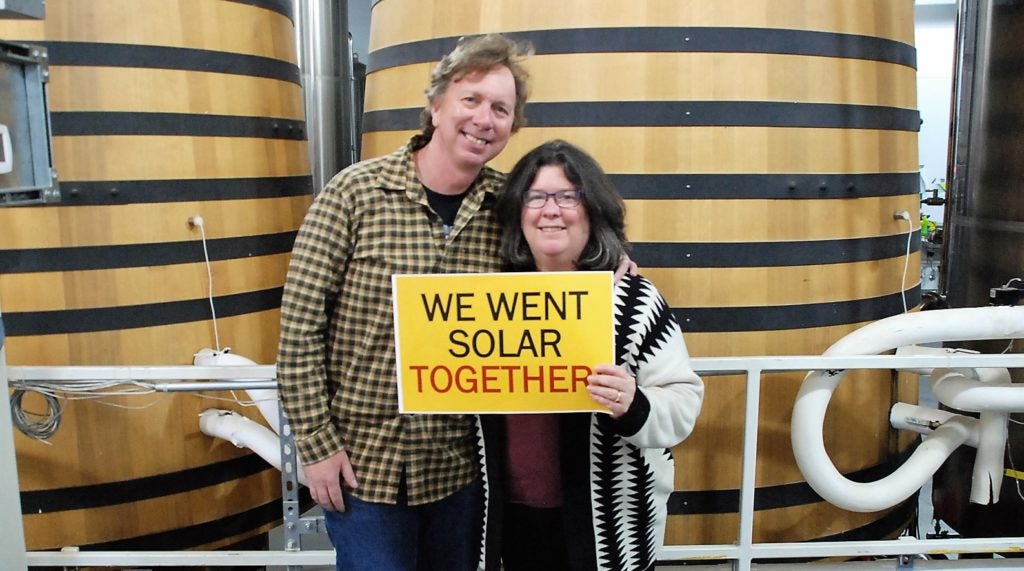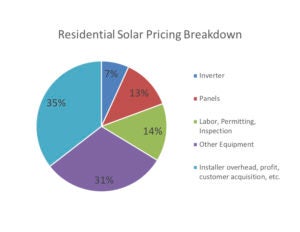Going solar in the wake of the solar tariff

The recent Trump Administration announcement that it would impose a 30% tariff on solar panels made overseas has raised concern about the cost of going solar.
The tariffs will only marginally increase the cost of a solar system

The imposition of a 30% tariff may sound like a major increase, but it needs to be examined in context of the total cost of going solar. The cost of solar panels is about 13% of a system’s total cost in a typical home installation. Other larger costs include the installer’s cost of customer acquisition and the cost of other equipment besides the panels. We expect the increased cost from the tariff will add between 10-15 cents per watt, or about 6% of a system’s total cost. If you installed a typical 7-kilowatt system, the increased cost of panels adds about $1,050 to your total system cost. Minus the 30% federal tax credit, and your additional cost lowers to $735. Over the 30-year life of your system, that amounts to about $2 more per month.
Solar United Neighbors can help you offset the cost of the tariff
We provide several ways to make the process of going solar easier and less expensive. Our solar co-ops enable groups of homeowners to save money by going solar together. We help you leverage the power of bulk negotiation. This enables you to get a discount and ensure you get the right system for your home, a strong warranty and quality installation. The potential savings of the group negotiation should more than offset the impact of the tariff. These co-ops are free to join and joining is not a commitment to purchase panels. Find a co-op in your area.
If there is not an active co-op in your area, we also have a membership program. This provides you one-on-one support through every step of the process, from learning the basics of solar equipment to choosing an installer and getting connected to your utility.
Solar is still a great long-term investment
Even though the new tariff will slightly increase costs, you will still save money each month on your electric bill. Every unit of solar electricity you produce is one less unit you have to purchase from your electric utility. Over time, the cumulative total of your electricity bill savings will pay off the upfront cost of your system. The payback period for a typical residential solar array is anywhere from 4 – 12 years, depending on market conditions and system performance. Solar is a long-term investment. Solar panel warranties last 25-30 years. Regardless of your exact payback period, your system will pay for itself.
The opportunity to go solar is stronger and more accessible than ever before. Solar can save you money and reduce your dependence on your utility by using a clean energy source.
